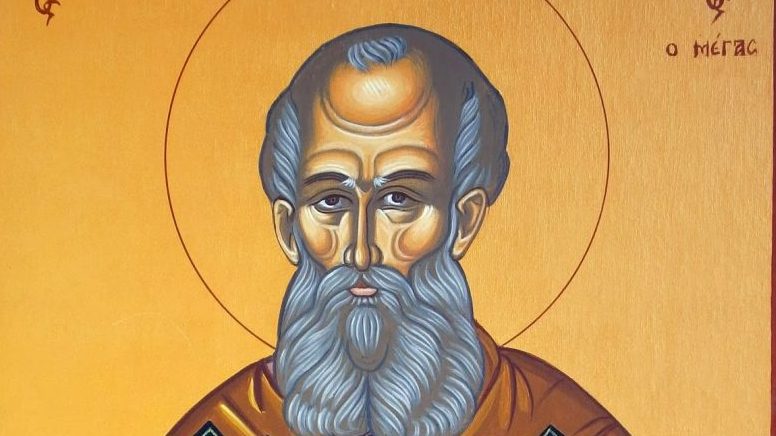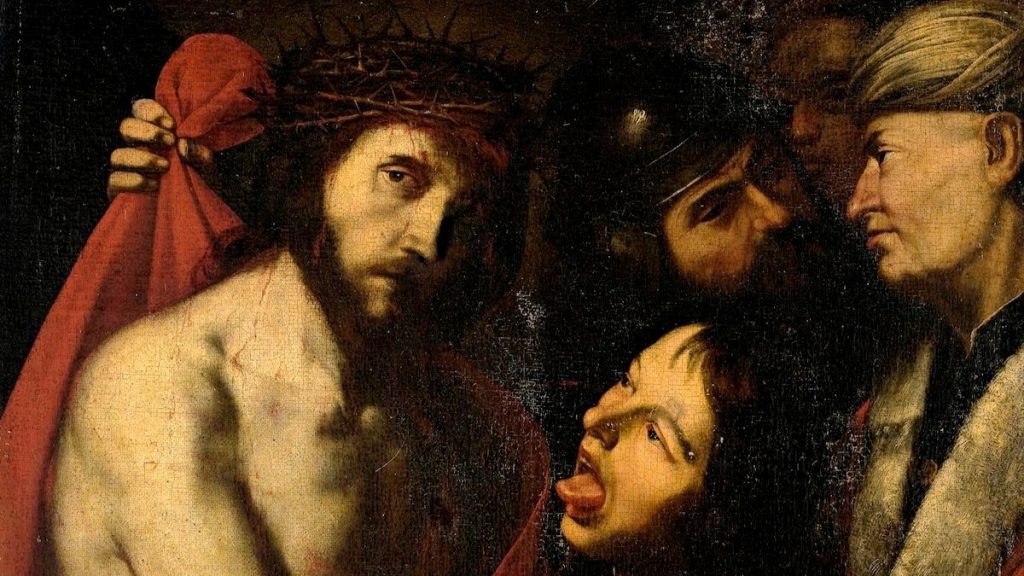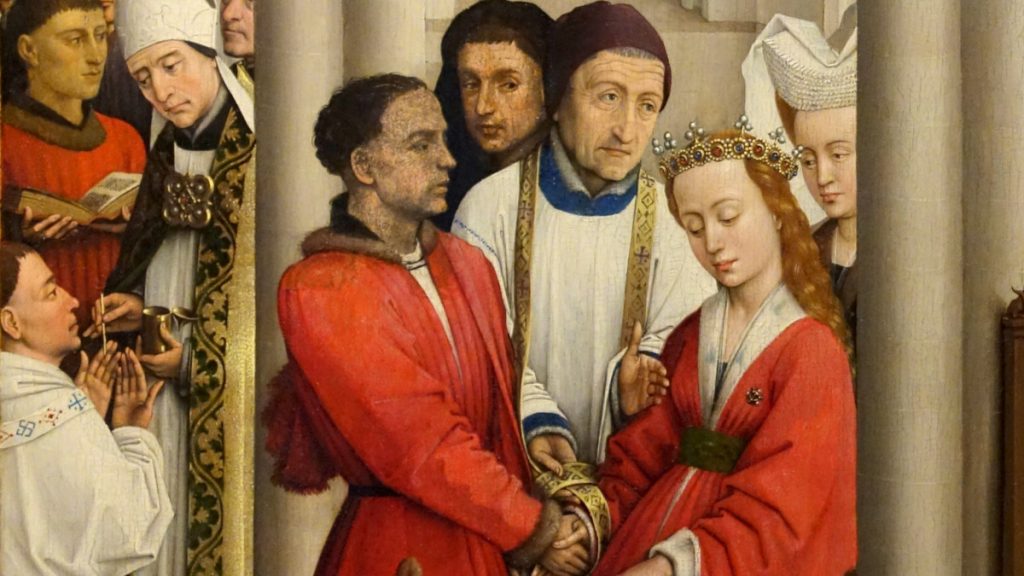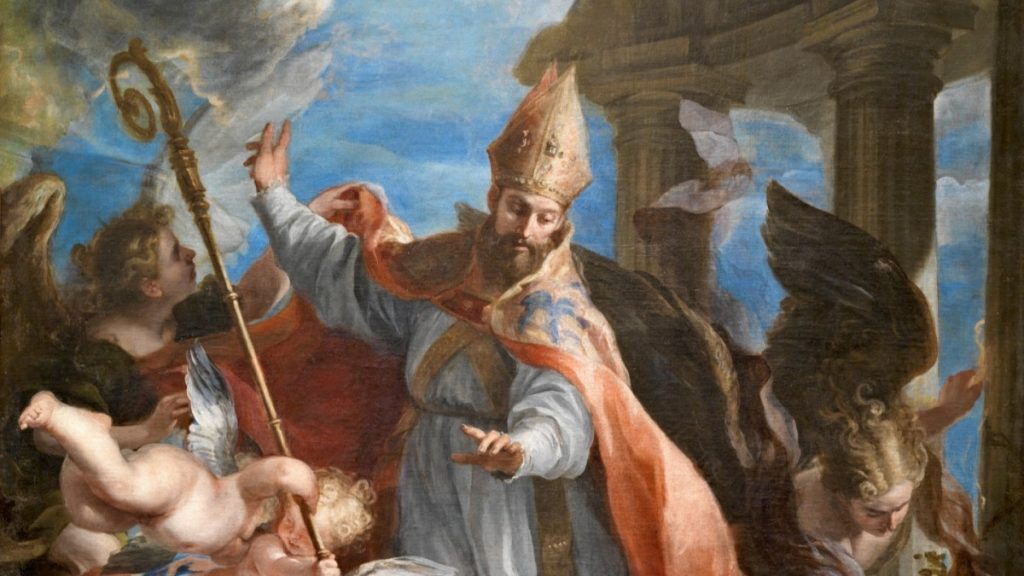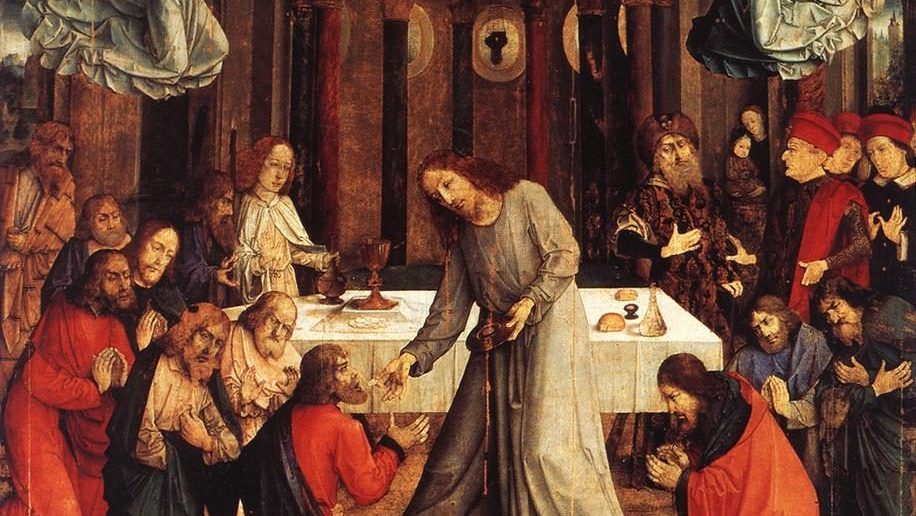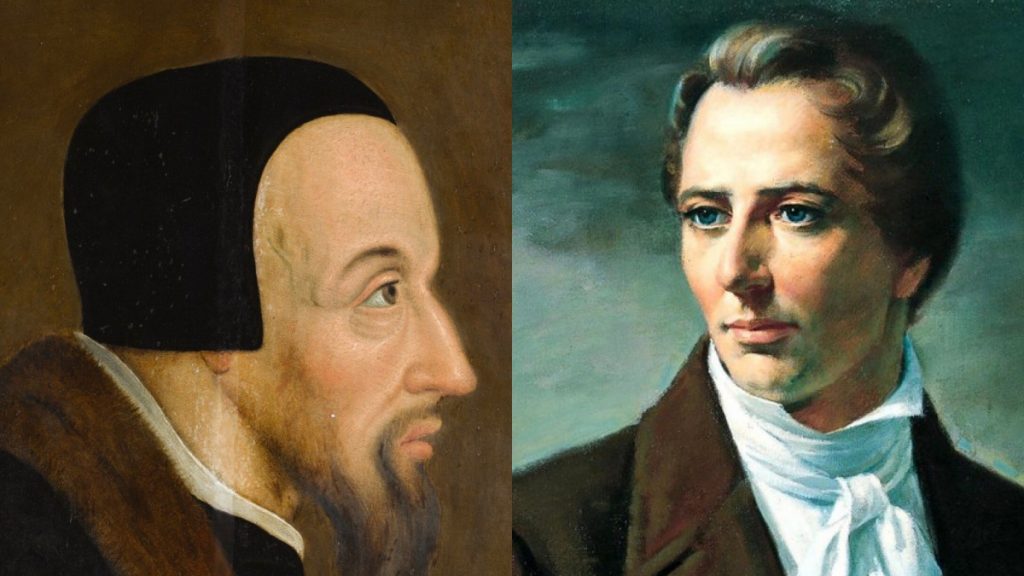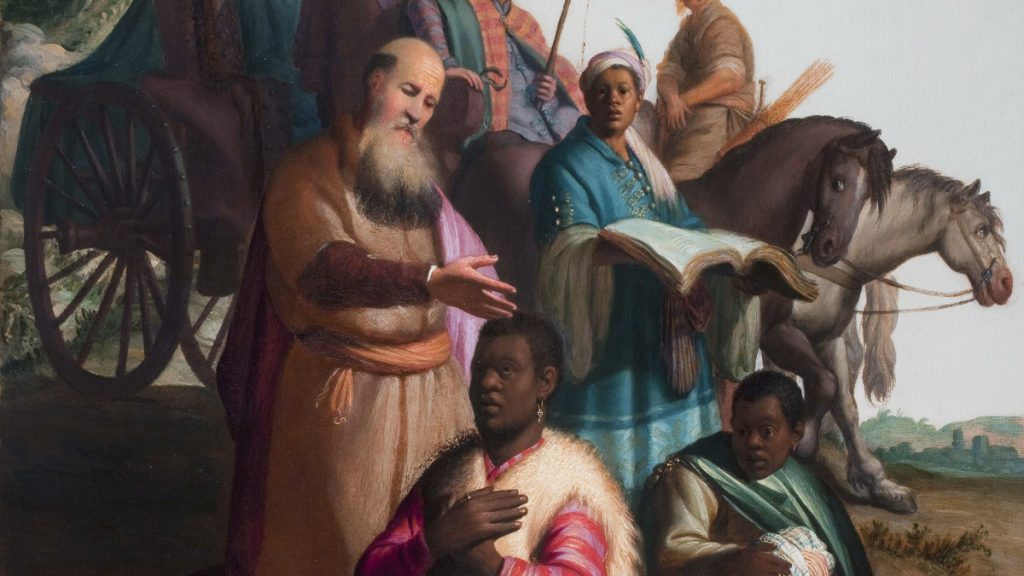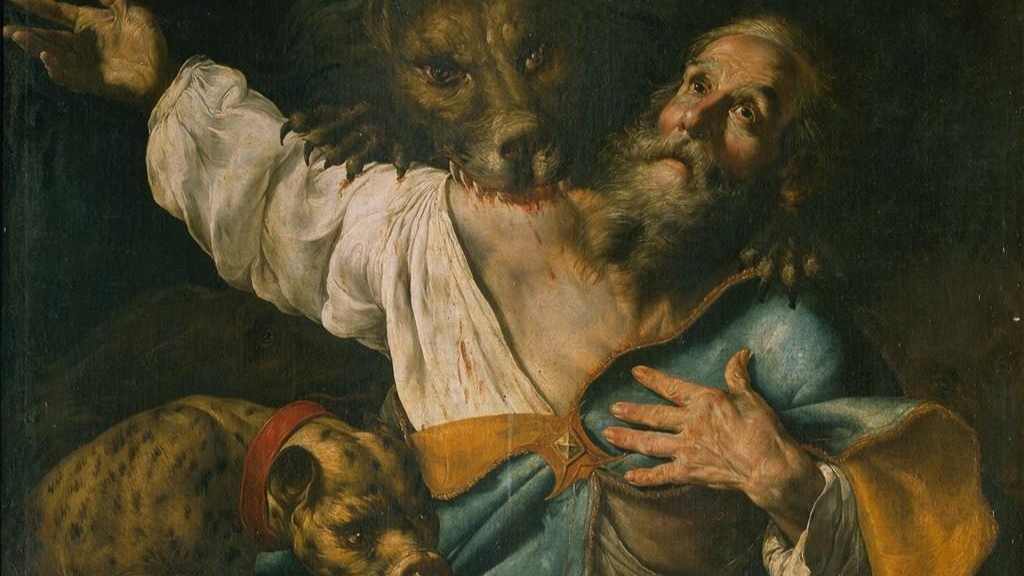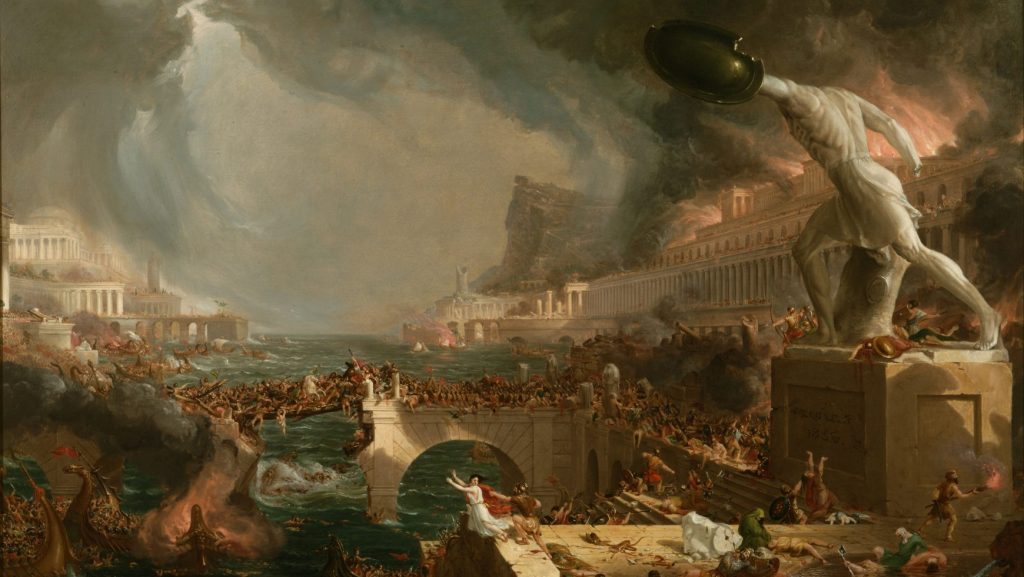(Updated July 26, 2025)
This Author Quote Archive collects pertinent quotes from the Church Father, St. Athanasius.
Next to each quote are the Topic Quote Archives in which they are included.
This Quote Archive is being continuously updated as research continues. Quotes marked with “***” have not yet been organized into their respective Topic Quote Archives.
Treatises
St. Athanasius, On the Incarnation of the Word (c. 330)
(§§8, 46, 55)
(§8) …He took pity on our race, and had mercy on our infirmity, and condescended to our corruption, and, unable to bear that death should have the mastery—lest the creature should perish, and His Father’s handiwork in men be spent for naught—He takes unto Himself a body, and that of no different sort from ours. For He did not simply will to become embodied, or will merely to appear. For if He willed merely to appear, He was able to effect His divine appearance by some other and higher means as well. But He takes a body of our kind, and not merely so, but from a spotless and stainless virgin, knowing not a man, a body clean and in very truth pure from intercourse of men. For being Himself mighty, and Artificer of everything, He prepares the body in the Virgin as a temple unto Himself, and makes it His very own as an instrument, in it manifested, and in it dwelling…
(§46) When did men begin to desert the worshiping of idols, save since God, the true Word of God, has come among men? Or when have the oracles among the Greeks, and everywhere, ceased and become empty, save when the Savior has manifested Himself upon earth?
Or when did those who are called gods and heroes in the poets begin to be convicted of being merely mortal men, save since the Lord erected His conquest of death, and preserved incorruptible the body he had taken, raising it from the dead?
Or when did the deceitfulness and madness of demons fall into contempt, save when the power of God, the Word, the Master of all these as well, condescending because of man’s weakness, appeared on earth? Or when did the art and the schools of magic begin to be trodden down, save when the divine manifestation of the Word took place among men?
And, in a word, at what time has the wisdom of the Greeks become foolish, save when the true Wisdom of God manifested itself on earth? For formerly the whole world and every place was led astray by the worshiping of idols, and men regarded nothing else but the idols as gods. But now, all the world over, men are deserting the superstition of the idols, and taking refuge with Christ; and, worshiping Him as God, are by His means coming to know that Father also Whom they knew not.
And, marvelous fact, whereas the objects of worship were various and of vast number, and each place had its own idol, and he who was accounted a god among them had no power to pass over to the neighboring place, so as to persuade those of neighboring peoples to worship him, but was barely served even among his own people; for no one else worshiped his neighbor’s god—on the contrary, each man kept to his own idol, thinking it to be lord of all—Christ alone is worshiped as one and the same among all peoples; and what the weakness of the idols could not do—to persuade, namely, even those dwelling close at hand—this Christ has done, persuading not only those close at hand, but simply the entire world, to worship one and the same Lord, and through Him God, even His Father…
(§55) This, then, after what we have so far said, it is right for you to realize, and to take as the sum of what we have already stated, and to marvel at exceedingly; namely, that since the Savior has come among us, idolatry not only has no longer increased, but what there was is diminishing and gradually coming to an end: and not only does the wisdom of the Greeks no longer advance, but what there is is now fading away: and demons, so far from cheating any more by illusions and prophecies and magic arts, if they so much as dare to make the attempt, are put to shame by the sign of the Cross.
And to sum the matter up: behold how the Savior’s doctrine is everywhere increasing, while all idolatry and everything opposed to the faith of Christ is daily dwindling, and losing power, and falling. And thus beholding, worship the Savior, “Who is above all” and mighty, even God the Word; and condemn those who are being worsted and done away by Him.
For as, when the sun is come, darkness no longer prevails, but if any be still left anywhere it is driven away; so, now that the divine Appearing of the Word of God is come, the darkness of the idols prevails no more, and all parts of the world in every direction are illumined by His teaching.
And as, when a king is reigning in some country without appearing but keeps at home in his own house, often some disorderly persons, abusing his retirement, proclaim themselves; and each of them, by assuming the character, imposes on the simple as king, and so men are led astray by the name, hearing that there is a king, but not seeing him, if for no other reason, because they cannot enter the house; but when the real king comes forth and appears, then the disorderly impostors are exposed by his presence, while men, seeing the real king, desert those who previously led them astray.
In like manner, the evil spirits formerly used to deceive men, investing themselves with God’s honor; but when the Word of God appeared in a body, and made known to us His own Father, then at length the deceit of the evil spirits is done away and stopped, while men, turning their eyes to the true God, Word of the Father, are deserting the idols, and now coming to know the true God.
Now this is a proof that Christ is God the Word, and the Power of God. For whereas human things cease, and the Word of Christ abides, it is clear to all eyes that what ceases is temporary, but that He Who abides is God, and the true Son of God, His only-begotten Word.
St. Athanasius, De Decretis: Defense of the Nicene Definition (c. 350-56)
(§19) The Council wishing to do away with the irreligious phrases of the Arians, and to use instead the acknowledged words of the Scriptures, that the Son is not from nothing but “from God,” and is “Word” and “Wisdom,” and not creature or work, but a proper offspring from the Father, Eusebius and his fellows, led by their inveterate heterodoxy, understood the phrase “from God” as belonging to us, as if in respect to it the Word of God differed nothing from us, and that because it is written, “There is one God, from whom, all things” (1 Cor. 8:6); and again, “Old things are passed away, behold, all things are become new, and all things are from God” (2 Cor. 5:17). But the Fathers, perceiving their craft and the cunning of their irreligion, were forced to express more distinctly the sense of the words “from God.” Accordingly, they wrote “from the essence of God,” in order that “from God” might not be considered common and equal in the Son and in things originate, but that all others might be acknowledged as creatures, and the Word alone as from the Father…For neither are other things as the Son, nor is the Word one among others, for He is Lord and Framer of all; and on this account did the Holy Council declare expressly that He was of the essence of the Father, that we might believe the Word to be other than the nature of things originate, being alone truly from God; and that no subterfuge should be left open to the irreligious. This then was the reason why the Council wrote “of the essence.”
(§20) Again, when the Bishops said that the Word must be described as the True Power and Image of the Father, in all things exact and like the Father, and as unalterable, and as always, and as in Him without division (for never was the Word not, but He was always, existing everlastingly with the Father, as the radiance of light), Eusebius and his fellows endured indeed, as not daring to contradict, being put to shame by the arguments which were urged against them; but withal they were caught whispering to each other and winking with their eyes, that “like,” and “always,” and “power,” and “in Him,” were, as before, common to us and the Son, and that it was no difficulty to agree to these…But the Bishops discerning in this too their dissimulation, and whereas it is written, “Deceit is in the heart of the irreligious that imagine evil” (Prov. 12:20), were again compelled on their part to collect the sense of the Scriptures, and to re-say and re-write what they had said before, more distinctly still, namely, that the Son is “one in essence” with the Father: by way of signifying, that the Son was from the Father, and not merely like, but the same in likeness, and of showing that the Son’s likeness and unalterableness was different from such copy of the same as is ascribed to us, which we acquire from virtue on the ground of observance of the commandments.
St. Athanasius, Four Discourses Against the Arians: Discourse 2 (c. 356-360)
Therefore let those who deny that the Son is from the Father by nature and proper to His Essence, deny also that He took true human flesh of Mary Ever-Virgin; for in neither case had it been of profit to us men, whether the Word were not true and naturally Son of God, or the flesh not true which He assumed…
St. Athanasius, Four Discourses Against the Arians: Discourse 3 (c. 356-60)
For no longer according to our former origin in Adam do we die; but henceforward our origin and all infirmity of flesh being transferred to the Word, we rise from the earth, the curse from sin being removed, because of Him who is in us, and who has become a curse for us. And with reason; for as we are all from earth and die in Adam, so being regenerated from above of water and Spirit [baptism], in the Christ we are all quickened; the flesh being no longer earthly, but being henceforth made Word, by reason of God’s Word who for our sake “became flesh.”
St. Athanasius, On Councils, or De Synodis (359-361)
(Part 1, §7) ***
Having therefore no reason on their side, but being in difficulty whichever way they turn, in spite of their pretenses, they have nothing left but to say: “Forasmuch as we contradict our predecessors, and transgress the traditions of the Fathers, therefore we have thought good that a Council should meet; but again, whereas we fear lest, should it meet at one place, our pains will be thrown away, therefore we have thought good that it be divided into two; that so when we put forth our documents to these separate portions, we may overreach with more effect, with the threat of Constantius the patron of this irreligion, and may supersede the acts of Nicaea, under pretense of the simplicity of our own documents.”
If they have not put this into words, yet this is the meaning of their deeds and their disturbances. Certainly, many and frequent as have been their speeches and writings in various Councils, never yet have they made mention of the Arian heresy as objectionable; but, if any present happened to accuse the heresies, they always took up the defense of the Arian, which the Nicene Council had anathematized; nay, rather, they cordially welcomed the professors of Arianism. This then is in itself a strong argument, that the aim of the present Councils was not truth, but the annulling of the acts of Nicaea; but the proceedings of them and their friends in the Councils themselves, make it equally clear that this was the case. For now we must relate everything as it occurred.
(§47) …For myself, I have written these brief remarks, from my feeling towards persons who were religious to Christ-ward; but were it possible to come by the Epistle which we are told that the former wrote, I consider we should find further grounds for the aforesaid proceeding of those blessed men. For it is right and meet thus to feel, and to maintain a good conscience toward the Fathers, if we be not spurious children, but have received the traditions from them, and the lessons of religion at their hands.
(§54) This is why the Nicene Council was correct in writing, what it was becoming to say, that the Son, begotten from the Father’s essence, is coessential with Him. And if we too have been taught the same thing, let us not fight with shadows, especially as knowing, that they who have so defined, have made this confession of faith, not to misrepresent the truth, but as vindicating the truth and religiousness towards Christ, and also as destroying the blasphemies against Him of the Ario-maniacs. For this must be considered and noted carefully, that, in using unlike-in-essence, and other-in-essence, we signify not the true Son, but some one of the creatures, and an introduced and adopted Son, which pleases the heretics; but when we speak uncontroversially of the Coessential, we signify a genuine Son born of the Father; though at this Christ’s enemies often burst with rage. What then I have learned myself, and have heard men of judgment say, I have written in few words; but do you, remaining on the foundation of the Apostles, and holding fast the traditions of the Fathers, pray that now at length all strife and rivalry may cease, and the futile questions of the heretics may be condemned, and all logomachy; and the guilty and murderous heresy of the Arians may disappear, and the truth may shine again in the hearts of all, so that all everywhere may “say the same thing” (1 Cor. 1:10), and think the same thing, and that, no Arian contumelies remaining, it may be said and confessed in every Church, “One Lord, one faith, one baptism” (Eph. 4:5), in Christ Jesus our Lord, through whom to the Father be the glory and the strength, unto ages of ages. Amen.
Homilies
St. Athanasius, Homily of the Papyrus of Turin: In Praise of the Blessed Virgin1
O noble Virgin, truly you are greater than any other greatness. For who is your equal in greatness, O dwelling place of God the Word? To whom among all creatures shall I compare you, O Virgin? You are greater than them all. O [Ark of the New] Covenant, clothed with purity instead of gold! You are the Ark in which is found the golden vessel containing the true manna, that is, the flesh in which divinity resides. Should I compare you to the fertile earth and its fruits? You surpass them, for it is written: “The earth is my footstool” (Isa. 66:1). But you carry within you the feed, the head, and the entire body of the perfect God.
If I say that heaven is exalted, yet it does not equal you, for it is written: “Heaven is my throne” (Isa. 66:1), while you are God’s place of repose. If I say that the angels and archangels are greater—but you are greater than them all, for the angels and archangels serve with trembling the One who dwells in your womb, and they dare not speak in his presence, while you speak to him freely. 106 | 107
If we say that the cherubim are great, you are greater than they, for the cherubim carry the throne of God (cf. Ps. 80:1; 99:1), while you hold God in your hands. If we say that the seraphim are great, you are greater than them all, for the seraphim cover their faces with their wings (cf. Isa. 6:2), unable to look upon the perfect glory, while you not only gaze upon his face but caress it and offer your breasts to his holy mouth…
As for Eve, she is the mother of the dead, “for as in Adam all die, even so in Christ shall all be made alive” (1 Cor. 15:22). Eve took [fruit] from the tree and made her husband eat of it along with her. And so they ate of that tree of which God had told them: “The day you eat of it, you shall die” (Gen. 2:17). Eve took [fruit] from it, ate some of it, and gave some to her husband [that he might eat] with her. He ate of it, and he died.
In you, instead, O wise Virgin, dwells the Son of God: he, that is, who is the tree of life. Truly he has given us his body, and we have eaten of it. That is how life came to all, and all have come to life by the mercy of God, your beloved Son. That is why your spirit is full of joy in God your Savior (Luke 1:47)!
Festal Letters
St. Athanasius, Festal Letter 2 (330)
Again we write, again keeping to the apostolic traditions, we remind each other when we come together for prayer; and keeping the feast in common, with one mouth we truly give thanks to the Lord. Thus giving thanks unto Him, and being followers of the saints, “we shall make our praise in the Lord all the day,” as the Psalmist says. So, when we rightly keep the feast, we shall be counted worthy of that joy which is in heaven.
Letters
St. Athanasius, Letter 29: To the Church of Alexandria (357)2 ***
But you are blessed, who by faith are in the Church, dwell upon the foundations of the faith, and have full satisfaction, even the highest degree of faith which remains among you unshaken. For it has come down to you from Apostolic tradition, and frequently has accursed envy wished to unsettle it, but has not been able. On the contrary, they have rather been cut off by their attempts to do so.
St. Athanasius, Letter 49: To Dracontius (354 or 355)
(§§4, 9) ***
(§4) For if all were of the same mind as your present advisers, how would you have become a Christian, since there would be no bishops? Or if our successors are to inherit this state of mind, how will the Churches be able to hold together? Or do your advisers think that you have received nothing, that they despise it? If so surely they are wrong. For it is time for them to think that the grace of the Font is nothing, if some are found to despise it. But you have received it, beloved Dracontius; do not tolerate your advisers nor deceive yourself. For this will be required of you by the God who gave it.
(§9) So take these as an example, beloved Dracontius, and do not say, or believe those who say, that the bishop’s office is an occasion of sin, nor that it gives rise to temptations to sin. For it is possible for you also as a bishop to hunger and thirst [Phil. 4:12], as Paul did. You can drink no wine, like Timothy [1 Tim. 5:23], and fast constantly too, like Paul [2 Cor. 11:27], in order that thus fasting after his example you may feast others with your words, and while thirsting for lack of drink, water others by teaching. Let not your advisers, then, allege these things. For we know both bishops who fast, and monks who eat. We know bishops who drink no wine, as well as monks who do. We know bishops who work wonders, as well as monks who do not. Many also of the bishops have not even married, while monks have been fathers of children; just as conversely we know bishops who are fathers of children and monks “of the completest kind.” And again, we know clergy who suffer hunger, and monks who fast. For it is possible in the latter way, and not forbidden in the former. But let a man, wherever he is, strive earnestly; for the crown is given not according to position, but according to action.
St. Athanasius, Letter 51: Second Letter to Lucifer ***
Accordingly we too, according to your confession of faith, desire to hold the Apostolic tradition, and to live according to the commands of the divine law, that we may be found along with you in that band in which now Patriarchs, Prophets, Apostles and Martyrs are rejoicing…And so we have received the books of your most wise and religious soul, in which we have seen the image of an Apostle, the confidence of a Prophet, the teaching of truth, the doctrine of true faith, the way of heaven, the glory of martyrdom, the triumphs against the Arian heresy, the unimpaired tradition of our Fathers, the right rule of the Church’s order…Forcibly and admirably, like light from darkness, you have separated the truth from the subtlety and dishonesty of heretics, defended the Catholic Church, proved that the arguments of the Arians are nothing but a kind of hallucination, and taught that the diabolical gnashings of the teeth are to be despised…Since then you are such a man, we ask the Lord in prayer that you may pray for us, that in His mercy He may now deign to look down upon the Catholic Church, and deliver all His servants from the hands of persecutors; in order that all they too who have fallen on account of temporal fear may at length be enabled to raise themselves and return to the way of righteousness, led away from which they are wandering, poor people, not knowing in what a pit they are.
St. Athanasius, Letter 60: To Adelphius, Bishop and Confessor, Against the Arians
(§§2, 6) ***
(§2) You, however, beloved and most truly longed-for, have done what befitted the tradition of the Church and your piety toward the Lord, in refuting, admonishing, and rebuking such men…
(§6) Such then, as we have above described, is the madness and daring of those men. But our faith is right, and starts from the teaching of the Apostles and tradition of the fathers, being confirmed both by the New Testament and the Old. For the Prophets say: “Send out Thy Word and Thy Truth” (Ps. 43:3), and “Behold the Virgin shall conceive and bear a son, and they shall call His name Emmanuel, which is being interpreted God with us” (Matt. 1:23; Isa. 7:14). But what does that mean, if not that God has come in the Flesh? While the Apostolic tradition teaches in the words of blessed Peter, “Forasmuch then as Christ suffered for us in the Flesh” (1 Pet. 4:1); and in what Paul writes, “Looking for the blessed hope and appearing of our great God and Savior Jesus Christ, Who gave Himself for us that He might redeem us from all iniquity, and purify unto Himself a people for His own possession, and zealous of good works” (Tit. 2:13-14).
St. Athanasius, Letter to the Bishops of Africa (c. 369)
But the word of the Lord which came through the ecumenical Synod at Nicaea, abides forever [1 Pet. 1:25].
Fragments
St. Athanasius, Fragment
But you are blessed, who by faith are in the Church, dwell upon the foundations of the faith, and have full satisfaction, even the highest degree of faith which remains among you unshaken. For it has come down to you from Apostolic tradition, and frequently has accursed envy wished to unsettle it, but has not been able. On the contrary, they have rather been cut off by their attempts to do so.
Footnotes
- Luigi Gambero, S.M., Thomas Buffer, trans., Mary and the Fathers of the Church: The Blessed Virgin Mary in Patristic Thought (San Francisco: Ignatius Press, 1999), 106-107; Athanasius, Homily of the Papyrus of Turin, ed. T. Lefort, in Le Muséon 71 (1958): 216-17. ↩︎
- This comes from a fragment that has been appended to Letter 29 based on internal evidence. ↩︎
